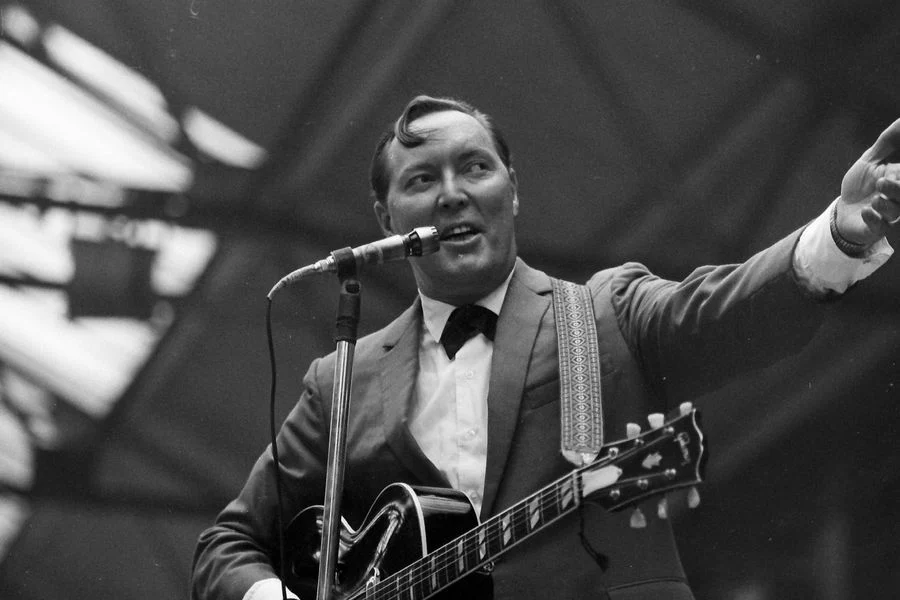William John Clifton Haley, better known as Bill Haley, was a pioneering figure in the history of rock and roll music. Born on July 6, 1925, in Highland Park, Michigan, and raised in Pennsylvania, Haley is widely credited with bringing rock and roll into mainstream culture during the early 1950s. With his band, Bill Haley & His Comets, he recorded some of the most iconic songs of the era, including the global hit “Rock Around the Clock.”
Haley’s early life was marked by adversity. A botched surgery when he was four years old left him blind in his left eye. Despite this, he showed early musical promise, influenced by his father, a banjo and mandolin player, and his mother, a classically trained pianist. Haley performed publicly as a teenager and eventually joined a group called the Down Homers. By 1947, he had formed his own group, the Four Aces of Western Swing, later renamed the Saddlemen.
In 1952, the Saddlemen became Bill Haley & His Comets, a name inspired by Halley’s Comet. Their sound began to shift from country and western swing to the emerging style of rock and roll. Their 1953 hit “Crazy Man, Crazy” was one of the first rock and roll songs to chart nationally.
Haley’s breakthrough came in 1954 with his recording of “Rock Around the Clock.” Initially a modest success, the song exploded in popularity after being featured in the 1955 film Blackboard Jungle. It reached number one on the Billboard charts and became a symbol of the new rock era. The song’s high-energy style, combined with rebellious youth culture, signaled a shift in American music and society.
Following this success, Haley recorded other major hits such as “Shake, Rattle and Roll,” “See You Later, Alligator,” and “Razzle Dazzle.” He appeared on several popular television shows, including The Ed Sullivan Show and Texaco Star Theater, bringing rock and roll into American living rooms for the first time. Haley also starred in early rock and roll films like Rock Around the Clock and Don’t Knock the Rock.
Though his popularity in the U.S. declined with the rise of younger stars like Elvis Presley, Haley remained a beloved performer internationally. He continued to tour throughout Europe, Latin America, and Australia well into the 1960s and 70s.
Bill Haley passed away on February 9, 1981, at the age of 55. Though often overshadowed by those who followed him, his influence on the development of rock music is undeniable. In recognition of his contributions, he was posthumously inducted into the Rock and Roll Hall of Fame in 1987.
Bill Haley’s legacy lives on through the millions of records he sold and the path he paved for generations of rock musicians. He didn’t just play music—he helped define a cultural revolution.

